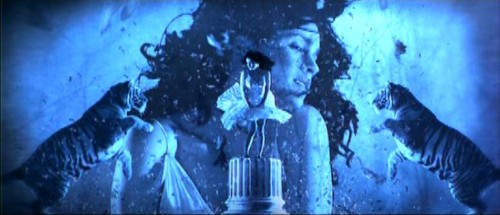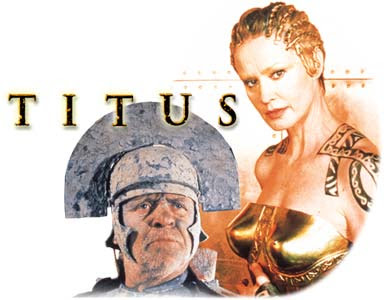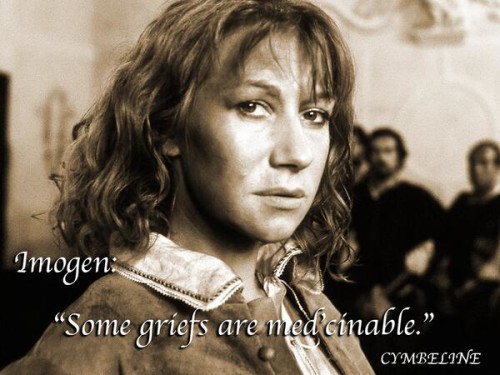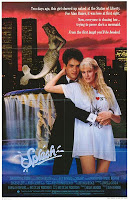
Julie Taymor’s contemporary approach to creating a film of ‘Titus Andronicus,’ then, has to address a variety of factors: 1) she has set up for herself the challenge of filming a Shakespeare play that has been called both an “early masterpiece” and an “Elizabethan pot-boiler”; 2) she’s a female director approaching a play that has, at its center, a ritual killing, a rape, and revenge cannibalism; and 3) she’s creating this piece of art during a historical moment during which entertainment media is rife with violence and there much alleged desensitization, as well as within a culture full of complex and problematic attitudes about rape.

Written by Amanda Rodriguez Trigger warning: frank discussion of rape & PTSD Julie Taymor’s Titus (based on Shakespeare’s Titus Andronicus) is a highly stylized production, involving elaborate costumes, body markings, choreography, era prop mash-ups, and extravagant violence. I tip my hat to Taymor for the scope and splendor of her vision, and I also applaud … Continue reading “Classic Literature Film Adaptations Week: Titus the Tight-Ass: Julie Taymor’s Depictions of the Virgin and Whore”

After recalling his greatest tragedies, Shakespeare suggests that all could end well, if men loved without defensive cowardice. “Some griefs are med’cinable.” Rising to such newfound greatness of heart, King Cymbeline describes himself as becoming “mother.” William Shakespeare: feminist punk?

Check out all of the posts for Rape Revenge Fantasies Theme Week here.

In ‘Titus Andronicus,’ Lavinia is brutally raped and disfigured (including having her tongue cut out so she couldn’t speak). This nod to Philomela in Ovid’s ‘Metamorphoses’ echoes the themes of the brutality of rape and the need for revenge. The women needed to name their rapists and share their stories (Lavinia writes in the sand; Philomela weaves a tapestry that tells her story). The women have as much power as they can in the confines of their society, and we the audience are meant to want justice and revenge.

When Shakespeare wrote Titus Andronicus and The Rape of Lucrece in the late 1500s, women were quite literally the property of men (their fathers, then their husbands). The rape culture that plagues us in 2013 was essentially the same, although laws of coverture have dissolved and women are no longer legally property.
And Shakespeare understood the horror of rape. Shakespeare–more than 400 years ago–seemed to understand that patriarchy hurts women. Patriarchy kills women.
Patriarchy is rape culture.

“The Depiction of Women in Three Films Based on the Fairy Tales of Hans Christian Andersen” by Alisande Fitzsimons I rather like this ending to a film because despite not sticking to the original story, it offers viewers a chance to see something that is still relatively unusual on-screen: a successful male character giving up … Continue reading “Classic Literature Film Adaptations Week: The Roundup”
# 50/50 5 Broken Cameras 500 Days of Summer 45 Years The 40-Year-Old Virgin 4 Months 3 Weeks and 2 Days 9 to 5 1971 101 Dalmations 127 Hours 10 Days in a Madhouse 10,000 km 3 1/2 Minutes, Ten Bullets 300: Rise of an Empire 12 Years a Slave 28 Days Later A Abuse … Continue reading “Film Directory”






